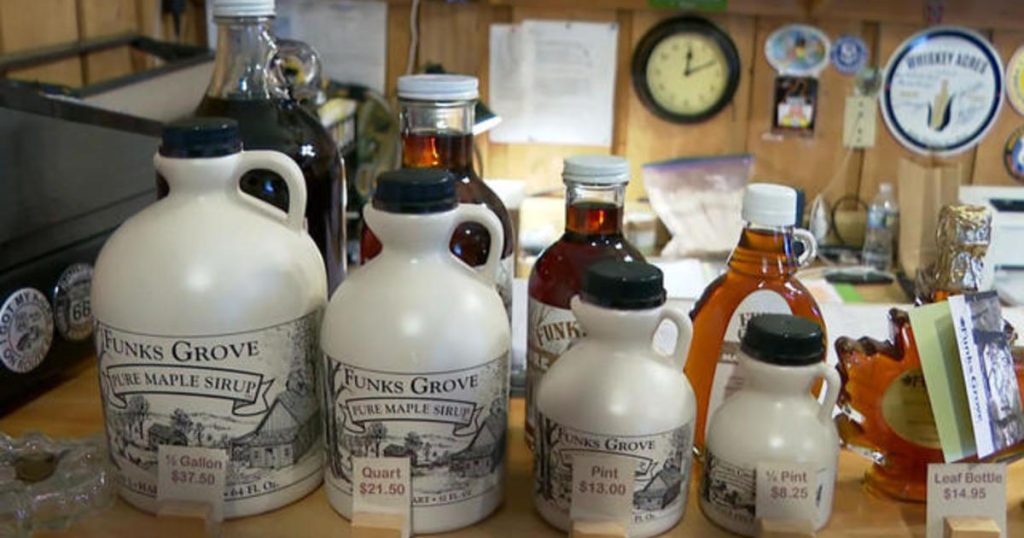The United States’ largest maple syrup farm is experiencing the impact of warm winters on its production. The farm, based in Vermont, is facing challenges as unseasonably warm temperatures are affecting the maple trees’ sap production. Normally, the farm taps around 158,000 trees to collect sap, but the warm winters are causing the sap to run too early, resulting in a decreased yield. This has led to a decline in the farm’s maple syrup production, creating challenges for the business.
The warm winters are disrupting the traditional process of maple syrup production, which relies on specific weather conditions to produce high-quality syrup. With temperatures rising earlier in the year, the sap is running before the farmers can tap the trees, resulting in a lower yield. This has forced the farm to adapt its methods and tap the trees earlier in the season to maximize production. However, this has not been enough to offset the impact of the warm winters, leading to a decrease in maple syrup output.
The farm is concerned about the long-term effects of warm winters on its maple syrup production. As climate change continues to alter weather patterns, the farm may face more frequent and severe disruptions in its production process. This could have significant implications for the business, as maple syrup is a key product that contributes to its revenue. To mitigate these challenges, the farm is exploring new technologies and methods to adapt to the changing climate and ensure a sustainable future for its maple syrup production.
In addition to the impact on the farm’s production, warm winters are also affecting the maple syrup industry as a whole. Other maple syrup farms across the country are facing similar challenges due to the changing weather patterns. This has led to concerns about the future of the industry and the impact of climate change on maple syrup production. As the demand for maple syrup continues to grow, farmers are under pressure to find solutions to adapt to the changing climate and ensure the sustainability of their production.
Despite the challenges posed by warm winters, the farm remains committed to producing high-quality maple syrup. It has implemented new strategies and technologies to improve its production process and maximize yield in the face of changing weather patterns. By staying proactive and innovative, the farm hopes to overcome the obstacles presented by warm winters and continue to meet the demand for its maple syrup products. While the impact of climate change is a significant challenge for the maple syrup industry, farmers like the ones at the largest maple syrup farm in the United States are working hard to find solutions and ensure the future of their businesses.
Overall, the story of the United States’ largest maple syrup farm highlights the complex and far-reaching effects of climate change on agriculture. As warm winters continue to impact maple syrup production, farmers are facing challenges in adapting to changing weather patterns and ensuring the sustainability of their businesses. By exploring new technologies and methods, farmers are working to overcome these challenges and secure the future of the maple syrup industry in the face of a changing climate.


